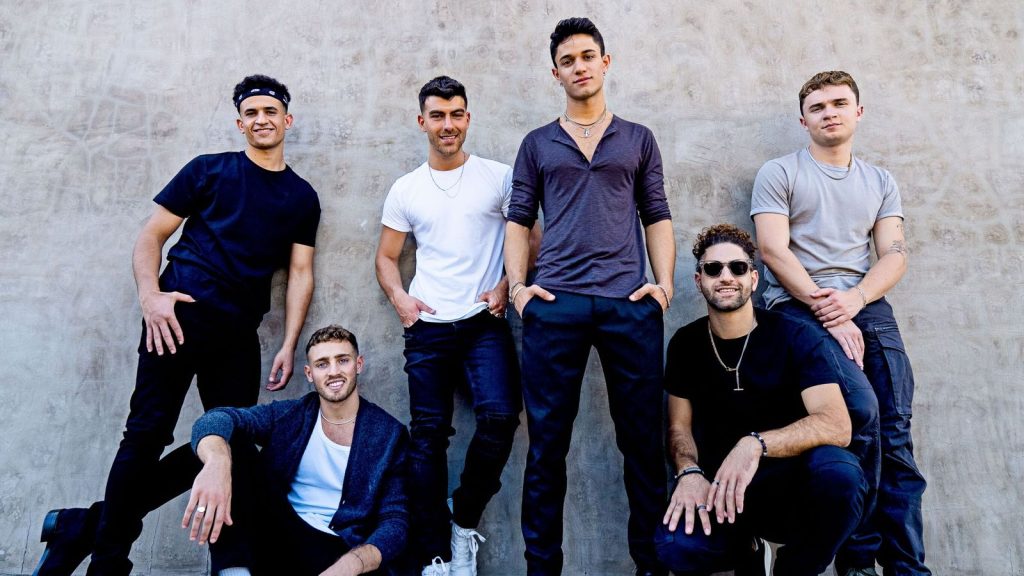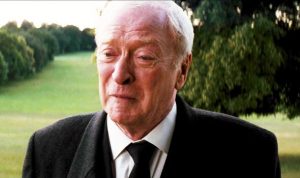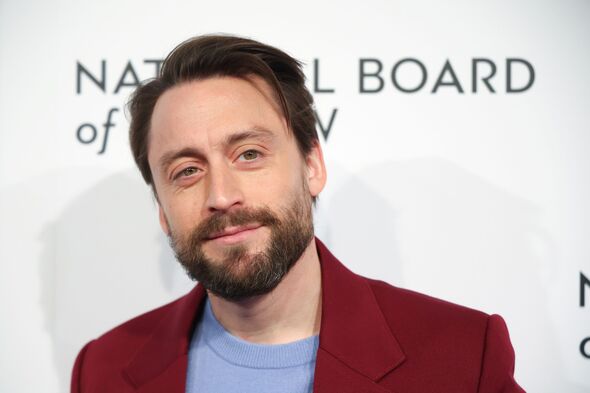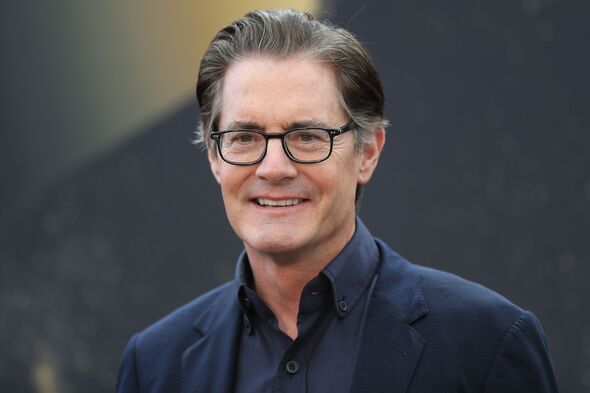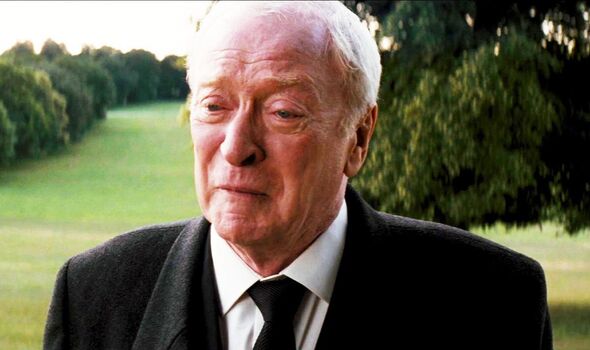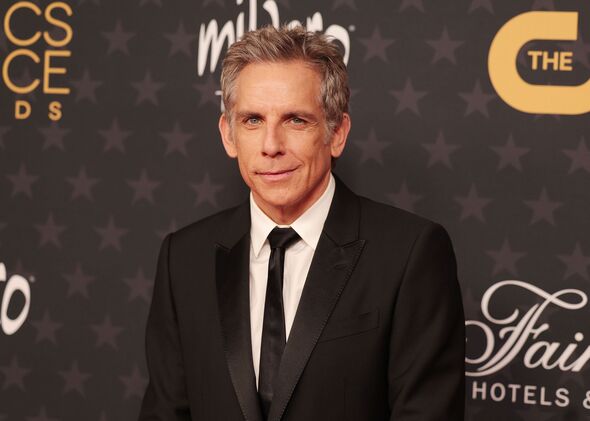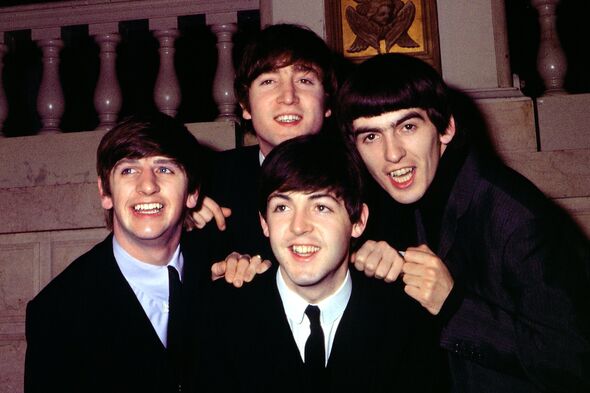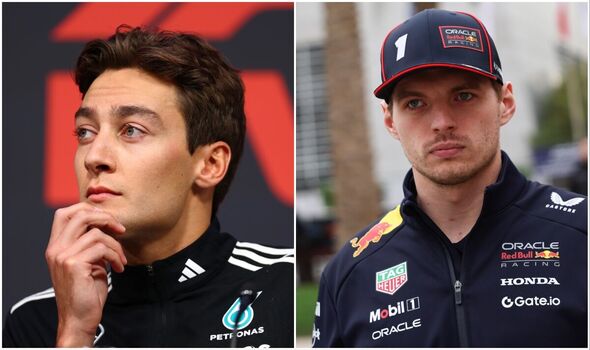The first Israeli-Palestinian boyband was ready to take on the world – then came 7 October
It should have been a feel-good story: six young men, plucked from obscurity to become music stars. That’s how Neta Rozenblat, a member of boyband as1one, puts it.
Pop hopefuls do not usually find themselves having to navigate fear, grief and complex political issues before the world even knows their names – but theirs is not a typical story.
As1one are billed as the first-ever Israeli Jewish and Palestinian Arab boyband, put together following a two-year search by US hitmakers behind acts such as Maroon 5 and Kings Of Leon.
While the band has found considerable support, including from big names – they recorded their first single with Nile Rodgers at London’s Abbey Road – as Israel’s military campaign in Gaza continues, they have also faced criticism and some outrage. “Wrong Direction”, reads one headline, while other critics say the concept is in poor taste.
The six members, four Israelis and two Palestinians, are early 20-somethings Nadav Philips, Niv Lin, Aseel Farah, Ohad Attia and Sadik Abu Dogosh, alongside Rozenblat.
They are hoping to become the Middle Eastern version of BTS. They say all they ever wanted to do was sing – now, they also want to spread a message of unity.
After auditions and the selection process, the young men were flown out to LA to start work on 6 October 2023. “On to the next adventure,” they posted on Instagram ahead of the flight, not knowing what was to come.
The following day, they woke up to the news of the militant group Hamas’s attack on Israel; some 1,200 people were killed and more than 200 were taken hostage. Since Israel’s retaliation, at least 44,500 Palestinians have been killed, according to Gaza’s Hamas-run health ministry. Israel claims it has killed more than 17,000 militants.
“We were just having fun, fulfilling our dreams,” says singer and pianist Lin, 23, who grew up in the southern Israeli town of Sapir, near the site of the Supernova music festival, at which more than 360 people were killed. During his early days in LA, he learned a friend had died. “Suddenly the war has begun. We really didn’t know what to do.”
They contemplated returning home, he says. “Then we realised we have a big opportunity. We can show the world it’s possible to be Israeli and Palestinian together… it doesn’t matter who you are.”
‘We are just six musicians, at the end of the day’
Speaking on Zoom from LA, the band members are sitting in a tight formation, camera ready, and take turns to answer questions, with 22-year-old Rozenblat, who plays piano, guitar and violin, taking the lead. They are all boyband gloss, smiles and enthusiasm, but respond readily to questions about their critics.
Rozenblat, who served as a medic in the Israeli army, points out the band was formed before the current war broke out and was “never intended to be a political statement”. But it’s hard not to be when their marketing highlights their “Israeli-Palestinian boyband” uniqueness.
“We all give our opinions, we all take each and every one of our opinions and our emotions very seriously,” says 22-year-old Palestinian Farah, the group’s rapper and dancer, addressing the imbalance of having four Israeli and two Palestinian members, and not an equal split.
“Me and Sadik have Palestinian identity, the other four have Israeli identity… in the end, we are here for our music.”
“This combination just made more sense,” Philips interjects. They were the six who worked best together.
“In the new context that we find ourselves in [following the outbreak of the war], it’s easier to look into it and to really try to find some sort of hidden meaning,” says Rozenblat. “People will see us as four Israelis and two Palestinians, but we’re just six musicians, at the end of the day.”
The search for ‘diverse’ talent
The music executives behind as1one, Ken Levitan and James Diener, say the aim was to create a “global, state-of-the-art pop group from the Middle East region” and showcase the “incredible and undeniable talent from this area of the world on a global stage”.
They focused on Israel and its mix of cultures and heritages, says Diener over email, following the interview with the group. “Then, we set out to find a diverse group of singers, rappers, instrumentalists and dancers throughout the country.”
Farah is from a Palestinian neighbourhood in the city of Haifa. Abu Dogosh is from Rahat, an Arab Bedouin city in Israel’s Southern District.
Auditions for as1one were not held in the West Bank or Gaza due to restrictions limiting movement and travel, which were “widely known… even before the current conflict”, says Levitan.
Ultimately, there were no “workable scenarios” to scout talent in those areas, he says. “But our goal was to find as diverse a line-up as possible, and musicians who were part of the roughly two million Palestinian Arabs living in the state of Israel were included in our search.”
He says they sought advice from local experts, including Palestinian Arab musical experts, and ensured their efforts were “as respectful and inclusive as possible”, with the support of the families of those auditioning.
Can as1one be truly representative? And how do Palestinians in those occupied territories feel about a shiny, happy boyband spreading a message of unity, when the obstacles to peace are more complex?
‘We’re not politicians – we don’t have the solution’
In the interview, Rozenblat responds, saying they all only ever wanted to sing. Both Farah and Abu Dogosh have family and friends in the West Bank, they tell me.
“We’re not politicians,” says Rozenblat. “We don’t know what the solution is for the conflict. We are here to make music.” However, he acknowledges why their background has led to questions.
“We are Israelis and we are Palestinians. We experienced this firsthand… a lot of the time, people will talk about the conflict as two sides and forget there’s people [involved]. These are our families, these are our people, they are our friends. People that we personally know, they’re involved in this conflict, and we want to just remind people that we’re all human.”
They are all supported by their friends and family, says Attia, 22, a singer who plays guitar, bass and drums. “When we got here we all had thoughts to come back. We were so worried about our families and wanted to be with them because this is the hardest time of ours and their lives. But they told us they want us to stay here.”
A new four-part documentary follows the band’s creation and the work put in before their launch. More than 1,000 young men auditioned across Israel before the final 20 were whittled down in 2022, during a boot camp in Neve Shalom, a unique village in Israel where Jewish and Arab citizens live together peacefully.
After the six were picked, the cameras followed their journey to LA. Having been “raised so differently”, the six young men were all “trying to convince each other what’s right and what’s wrong” after the Hamas attacks, says Philips. “The right thing to do is to listen.”
Read more from Sky News:
Dick Van Dyke says he’s ‘not afraid’ of death
Sabrina Carpenter to headline BST
“You have to die a little to learn,” adds Farah. “We have different backgrounds, different opinions… in the end, we all want peace. We all want a way to move forward.”
It has been a change of lifestyle, for some more than others. “It’s very different than home,” says Abu Dogosh, the group’s quietest member, who is shown in the documentary talking of his “simple” upbringing. “We are trying to make this our new home.”
‘If it has a good heart, then it can be good’
They want to be the world’s next biggest boyband, says Philips. They have just released their second single, Stranger, ahead of their self-titled debut album, following the first single, All Eyes On Us, the song recorded with Rodgers.
Farah says he has been inspired by the cultural change brought by BTS, who “broke out K-pop into the entire world”.
Together, as1one hope to make cultural changes, too, he says. “We want the people who make groups to feel courageous to do something a little bit controversial, a little bit risky – because if it has a good heart, then it can be good.”
Following the interview, Levitan reiterates Rozenblat’s words, saying “the world is a different place” now compared with when they started their search. “We are all looking at things through a different lens”.
But music is the soundtrack to people’s lives, he adds, and people will always find connection through it.
“All of that is what’s motivating us in the as1one journey – to create the best music, unite people and offer positivity. We are proud of as1one and their music.”
As1One: The Israeli-Palestinian Pop Music Journey is out on Paramount+ from 3 December
You may be interested
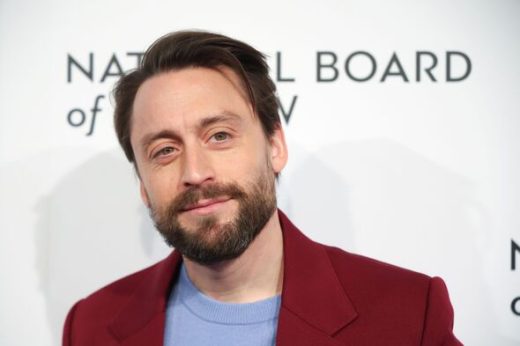
Kieran Culkin reveals his four favourite films including 'greatest kids movie of all time'
admin - Mar 14, 2025[ad_1] The Succession star picked one classic that stars his older brother Macaulay - but it's not Home Alone. [ad_2]…
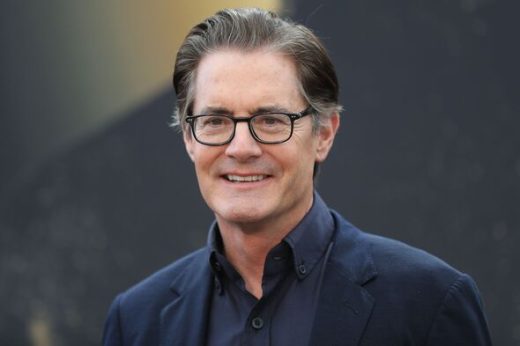
Twin Peaks' Kyle MacLachlan lists his 4 favourite films ever
admin - Mar 14, 2025[ad_1] Kyle MacLachlan, best known for his roles in Twin Peaks and Dune, has shared his four favourite films in…
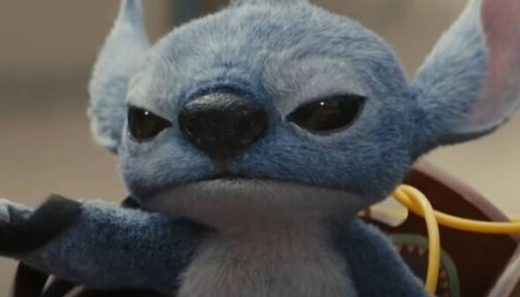
Disney's Lilo & Stitch live action remake trailer gets thumbs-up from fans of the original
admin - Mar 14, 2025[ad_1] The trailer for the live action remake of Lilo & Stitch has been released and fans are already in…
Leave a Comment
You must be logged in to post a comment.






